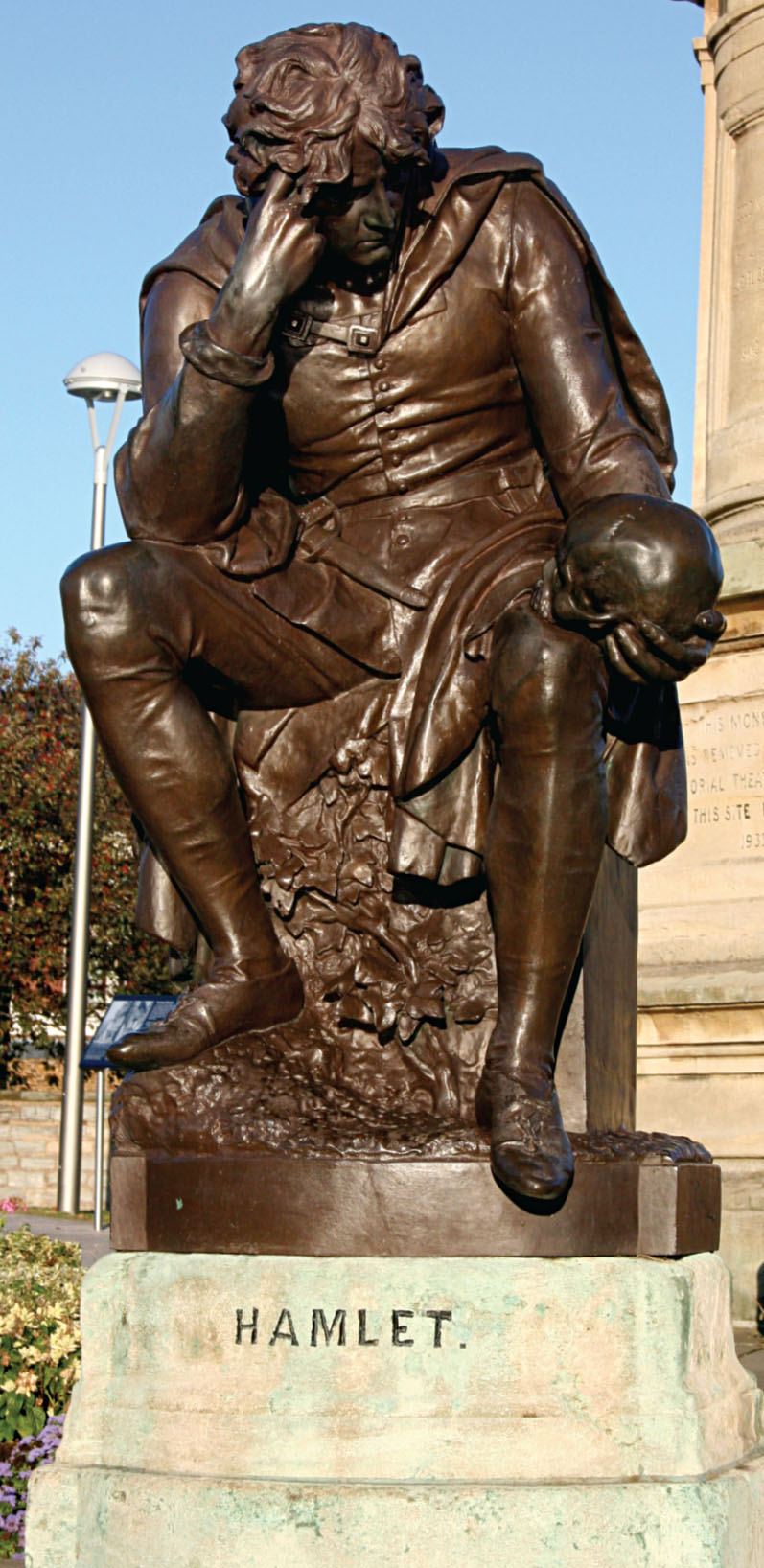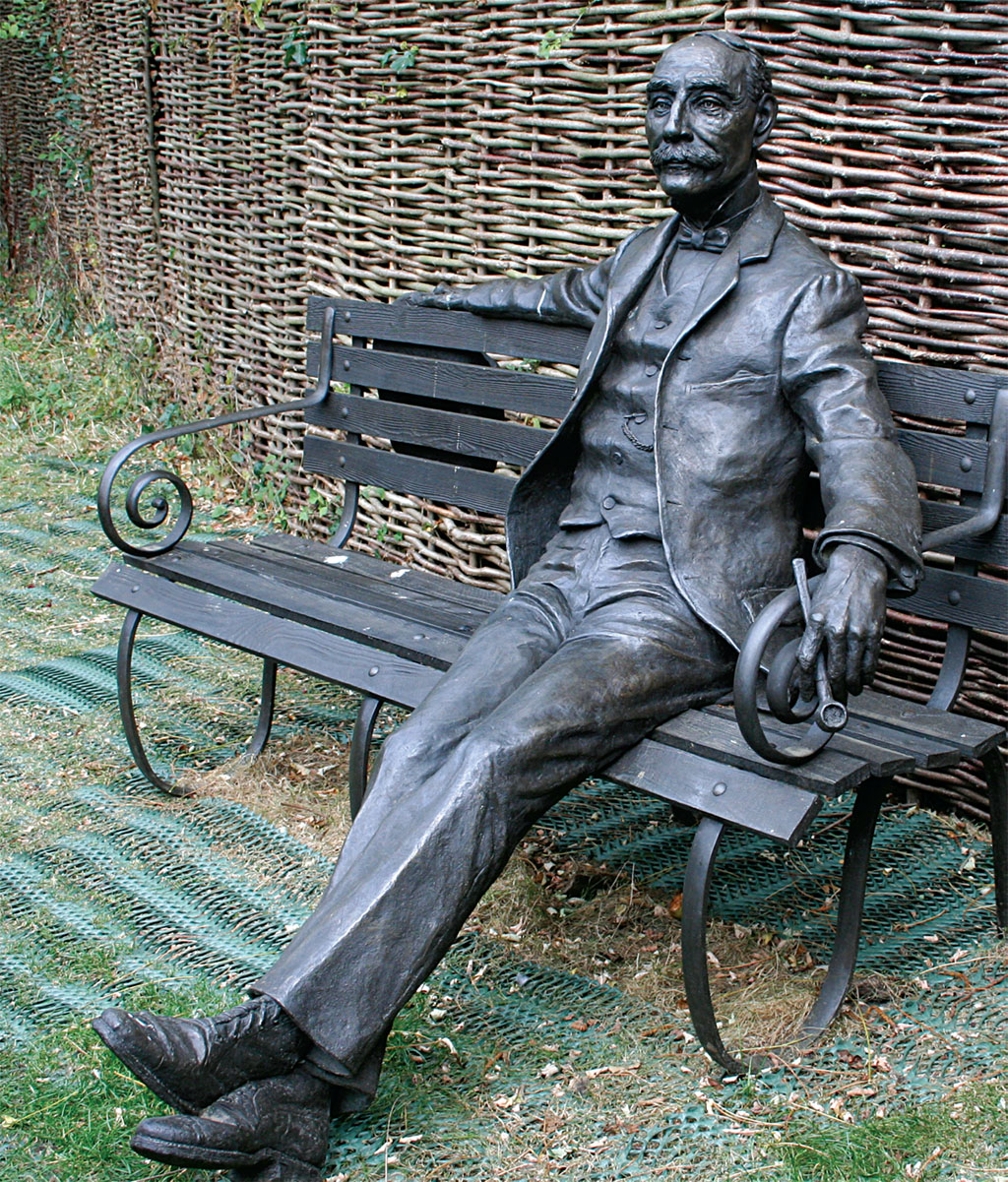
SCARCELY any official meeting between the United Kingdom and the States passes unaccompanied by meditations on the “special relationship” that has marked the alliance of our nation states for more than a century. The definitive word on what that “special relationship” means exactly has yet to be written. In fact, the term has always been amorphous, meaning just what each individual or agency intends.
However it is defined, it is probably safe to assume that British Heritage readers feel that relationship, or a special kinship with Britain, more keenly than does the public at large on either side of the Pond.
To the average Brit, (who, if you’ll remember from last issue’s Dateline column is named Smith, drives a Fiesta, goes to the pub once a week, etc.), the “special relationship” appears very differently than it does to us, or to Americans in general.
To Fiesta-driving Smitty, that relationship is principally perceived in political terms. Our nations are allies on the geopolitical stage. Certainly, we have fought together in the wars of the last century and stood beside each other through the challenges of the Cold War and the decadelong war against Muslim terrorism.
It challenges British pride and sensibilities that in this long alliance Britain is perpetually the junior partner. David Cameron got himself in trouble just this summer for making a comment to this effect. It rankles like a kid brother who exists constantly in the shadow of an older, accomplished sibling. The collective British subconscious smarts as well that America succeeds Britain as the heavyweight power in any international alliance.
Yes, we properly cheer that the UK has stood beside us militarily in Iraq and Afghanistan. The Brits, on the other hand, are well aware that they would not be there but for us. We have long called the tunes to which they have loyally danced on the world stage. But American foreign policy has often been unpopular with the British public.
Little wonder that the Smiths understand the basics of American politics far better than all but a small percentage of Americans know what is happening in Britain. Everyone knows Barack Obama and Hillary Clinton, and many have an opinion. Few Americans know David Cameron or his politics and still fewer could identify Nick Clegg in a lineup.
Yes, unquestionably Brits and Americans get along well together, and we do share an outlook on the world shaped by the same historical and cultural influences. Britons do like Americans in person—either as guests in Great Britain or as hosts in the States. They just dislike American government—of whatever political stripe that proves to be—and the collective weight of American influence that leaves them perennially in its shadow.
With American popular culture, the Smiths have a love-hate relationship, resenting what they feel is an erosion of traditional British ways of life by the steamroller of American television, Hollywood and fast food chains. In fact, however, Britain more than manages to pull its weight in what is really a shared contemporary popular culture across the English-speaking world of Britain and her settled colonies—Australia, Canada, New Zealand as well as the U.S. Pop music, theater, fashion, television and films are all a valuable economic and cultural export from Britain. Still, it is in political terms, not in shared culture, that the pub-going Smiths see the “special relationship.”
Over the last couple of decades, the World War II generation’s passing has left new generations of Britons unemotional about this relationship. Their attention and their domestic life has been increasingly dominated by the European Union for the past two decades (not without great chagrin in many British quarters). Still, it is hardly surprising that Americans have a warmer, fuzzier feeling about the “special relationship” than do Brits.
[caption id="LivingtheHistory_img2" align="aligncenter" width="797"]

Americans don’t see that “special relationship” as a political one. Rather, we see our worldwide political alliances as a result of the relationship. For Americans, whether we consciously acknowledge it or not, Great Britain is still the “Mother Country” to our culture. Certainly, language alone is a huge bond in terms of how we perceive and interpret the world. Language not only creates a shared cultural heritage, but determines whole philosophical systems and steers world views.
[caption id="LivingtheHistory_img3" align="aligncenter" width="1024"]

DANA HUNTLEY
Beyond that, though, we grow up taught that the Magna Carta is a document of our own political lineage, that our political system is derived from Britain—trial by jury, habeas corpus, representative democracy and so much more—from John Locke and Thomas Paine and John Stuart Mill.
We grow up reading Shakespeare and Dickens, Wordsworth and Tennyson, Beatrix Potter, King Arthur and Robin Hood; we go to churches—Episcopal and Presbyterian, Methodist, Baptist and Quaker—that have their roots and their history in Britain; many of our most revered institutions have British origins as well—the Boy Scouts, Salvation Army and YMCA, for instance. There are more G&S societies in the U.S. than in Britain; our traditional graduation march is Elgar’s “Land of Hope and Glory.” Okay, we know it as “Pomp and Circumstance.” And this coming season of the year we listen to Messiah and sing largely English carols.
For most Americans, of whatever ethnic or national extraction, coming to Britain is felt in some sense as a homecoming. When Americans travel to Britain, as we do by the millions, we come to live the history; we come to be awed by the castles, cathedrals, gardens, stately homes and museums. We come to see the sights and sites of our shared history: Ironbridge Gorge, Runnymede, Canterbury and Washington Old Hall. We come to see the literary sites and the extraordinary landscapes of our imagination: Hardy’s Casterbridge, Lorna Doone Country, Jane Austen’s House, the New Forest and the Borders.
We come to go down the pub, eat fish & chips and visit with the Brits. We certainly don’t come to queue at MacDonalds and visit Alton Towers. We don’t come to sit on the beach in Bournemouth, Brighton or Blackpool.
When Brits come to America, on the other hand, they generally come to visit theme parks and lie on the beach, or to New York City. We’re often a place to seek the sun, or to revel in that popular culture with which they have that love-hate relationship—Disneyworld and Baywatch, movie studios and Macys. You find them flying into Orlando, in Southern California and shopping in Manhattan.
Those who do venture into the American equivalent of Middle England (maybe drawn to Graceland, Route 66 or the White Mountains fall foliage), however, find a warmth and hospitality that Brits don’t receive anywhere else in the world—as they will be quick to bear witness. A British visitor anywhere in small town America is greeted like a long-lost connection to the old hometown.
Forget the ups and downs of government relations; that has never been what it’s about for us. It’s not hard to understand why Americans feel our special relationship more viscerally than do our British kin. It is a part of our very identity. And despite the mutability of world politics and the multicultural influences of our transworld age, that’s apt to remain true for generations to come.





Comments